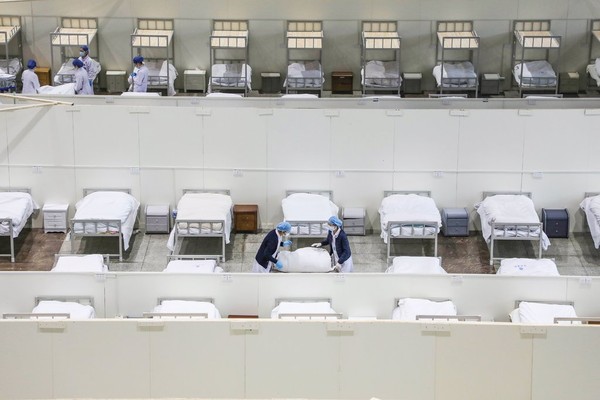Public fear over the novel coronavirus (COVID-19) outbreak in China is increasing, as the number of cases rises and more countries report occurrences of the virus within their borders. By February 13, 45,210 confirmed cases of the COVID-19 have been reported worldwide, of which 8,216 people are in critical condition while 1,118 have been killed by the virus. Of the total, 44,688 cases (98.85%) are in mainland China. The rest are spread amongst 27 other countries, with Japan, Hong Kong, and Singapore reporting the most cases outside China. So far, two deaths have been reported outside the Chinese mainland: a 44-year-old Wuhan resident in the Philippines, and a 39-year-old man in Hong Kong who visited Wuhan in January.

In South Korea, 28 people have been infected and four have since recovered. South Korean health officials are currently on the lookout for asymptomatic patients after a 41-year-old Korean woman was discovered with the virus days after initially testing negative.
The first cases of the virus are believed to have originated in the city of Wuhan — specifically in the Huanan Seafood Wholesale Market — in December. The then-unknown virus was initially named 2019-nCoV by the WHO after being identified as a new coronavirus, then officially titled COVID-19. Wuhan was put under effective quarantine on January 23, preventing any resident from leaving without permission and suspending all public transportation services to the city. China also canceled all large-scale Lunar New Year celebrations and suspended all tours, including international ones, in an attempt to curb the spread of the virus. Additionally, many airlines have halted flights to and from mainland China. However, some health experts have expressed fears that the quarantine measures set by Chinese authorities might not be effective, since around five million people fled Wuhan before the lockdown took effect. Following its rapid spread, the WHO declared the novel coronavirus outbreak as a global health emergency on January 30, acknowledging its threat to countries outside China.
As of February 13, 4,865 people have recovered from the disease. The USA’s National Institutes of Health (NIH) began developing a vaccine against the coronavirus in January, and HIV drugs employed in China have shown decent results. However, no proven cure for this novel coronavirus has been discovered. Amidst the public panic, the WHO has warned against hoarding practices for protective equipment such as masks and gloves, asking for non-medical workers’ solidarity, as well as assistance in fighting back rampant misinformation. Google, Facebook, and Twitter have also joined the battle against rapidly spreading fake news about the coronavirus on social media.
The novel coronavirus has symptoms similar to the common cold, such as fever, sore throat, and muscle pain. It is believed to have an incubation period of 2 to 14 days. Coronaviruses are a large family of viruses commonly found in animals such as cattle, camels, cats, and bats. How the virus jumped from animal carriers to humans is still not fully understood, but person-to-person transmission happens mainly via respiratory droplets produced when an infected individual coughs or sneezes. However, experts are still unsure about the communicability of the virus at different stages of infection. The virus is also noted to affect the older generation more severely — the median age of infected patients is around 49 to 56 years old.
To avoid contracting 2019-nCoV, the WHO has advised the public to wash their hands often with soap and water, cover their mouth and nose when coughing and sneezing, avoid touching their eyes, nose, and mouth, and avoid consumption of raw or undercooked meat products. Although the rate of new cases has decreased after February 5, health experts warned that it was too soon to assume that the outbreak had reached its peak. After multiple coronavirus cases were found, Korean authorities have also emphasized the importance of keeping personal hygiene, discouraged large-scale events, and suggested that schools postpone the start of the new semester.

